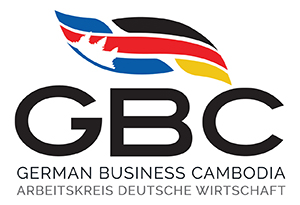- Posted on: 07.11.2017
With the opening of the German Embassy in Phnom Penh on November 15th, 1967 the Kingdom of Cambodia and the Federal Republic of Germany officially established diplomatic relations. Despite an interruption between 1969 and 1992, both countries remember the 50th anniversary this year.
Bilateral relations between Germany and Cambodia have no long tradition and connections between both countries were rather seldom. The Khmer language does not even have its own word for Germany. Most likely, the first most meaningful contact with an Allemand – Cambodians use this French loanword until present days – was the expedition of renown polymath Adolf Bastian, who detected the Hindu roots of the Angkor era in 1863.
This changed slightly in the 1950s. At the same time when Cambodia under Norodom Sihanouk struggled for independence which was finally achieved in 1953, Germany recovered gradually from its moral and physical destructions caused by World War II and the Holocaust.
After regaining sovereignty in 1955, the Western Federal Republic of Germany officially recognised the Kingdom of Cambodia one year later. Due to its own policy of strict neutrality, Cambodia also began building a relationship with the Eastern German Democratic Republic (GDR).
This was problematic as liberal West Germany would regard it as an unfriendly act if third countries were to recognize socialist East Germany or maintain diplomatic relations with it. Finally, after Chancellor Kurt Georg Kiesinger officially recognised the inviolability of Cambodia’s borders, West Germany was allowed to upgrade its diplomatic mission to an embassy on November 15th, 1967.
However, after Cambodia officially recognised East Germany on May 8th, 1969, the Federal Republic suspended bilateral relations within one month. While the GDR opened its own embassy, three West German diplomats continued to work at the French embassy until April 17th, 1975 when the Khmer Rouge conquered Phnom Penh. All western diplomats left Cambodia during the Khmer Rouge period.
After Vietnam – a close ally of the Soviet Union and the GDR – made an end to the brutal Pol Pot regime in early 1979, East Germany reopened its embassy in Phnom Penh and provided more German assistance than ever before.
In the 1980s, around 4,000 university and vocational students went to the GDR, bringing both cultures closer together than ever before. West Germany as an ally of the United States, however, backed the Coalition Government of Democratic Kampuchea and took in refugees from camps at the Thai-Cambodian border, mostly orphans. A source of shame until this day, West German communists continued to praise and support the Khmer Rouge although their atrocities were already known.
Thanks to the end of the cold war, both Cambodia and Germany were able to find answers to their questions. Germany reunited in 1990 while the Paris Peace Accords of 1991 were supposed to end the Cambodian conflict. German history was written in Cambodia when the Federal Republic participated with paramedics in the UNTAC mission (1992-1993): For the first time since the end of World War II, German soldiers were on a military operation abroad. On October 3rd, 1993, full diplomatic relations were re-established.
Until the 1990s, both states had a rather aloof relationship – a fact that finally emerged as an advantage. In difference to numerous other foreign forces which tried to safeguard their political interests in Indochina and Cambodia over decades, relations were not contaminated by an involvement of Germany in the Cambodian conflict.
As of today, bilateral relations are trustful and intact, and exercised on the political, economic, and cultural level. Since 1993, Germany has donated more than € 400 million to Cambodia’s development process. Together with numerous organisations, state agencies offer assistance in a wide range of sectors and programs. Substantiated through similarities in history, Germany also provides assistance for Cambodia’s attempts to come to terms with the Khmer Rouge legacy. For years, political foundations have assisted Cambodia’s state institutions and civil society organizations.
On the cultural level, Germany supports the conservation of heritage sites within the Angkor archaeological park and excavations in Prey Veng province. In the capital, both Meta House and the Art Plus Foundation have become well-respected institutions for cultural exchange.
By buying mainly textiles and shoes, the Federal Republic is the third largest importer of Cambodian products. The German Business Group (ADW), an association of German companies and brands operating in Cambodia, is dedicated to further extending business relations between both countries.
Germany continues to support Cambodia through bilateral relations as well as through its membership in the European Union. Among others, green energy and sustainability as well as the development of a skilled workforce for Cambodia’s looming industrialisation appear to be promising sectors in which Germany can provide valuable assistance.
As a leading democracy, Germany closely observes the current shrinking space for civil society and political parties in Cambodia. In September this year, the Federal Republic was the only European country that publicly campaigned for the immediate release of the current opposition leader. Time will tell whether bilateral relations could be affected by different concepts of political pluralism and participation.
